Review for Patlabor - The Mobile Police TV Series Collection 2
Introduction
If you finish watching the first half of Patlabor: The Mobile Police – TV Series, it only makes sense to go straight into the second half. And I’m nothing if not sensible. I also really appreciate Patlabor’s down to earth, character based approach to the giant robot genre, which prior to this, the closest I had seen was in Dai Guard. Quite frankly after all this time, I find that the characters in entertainment are more interesting than the technology they interact with. That’s one reason why I never indulge my nostalgia for shows like Knight Rider. Patlabor is a show where the character writing is paramount, and it shows in the final product. I found the first half of the series to be even more of a delight than the OVAs, and I’m hoping for good things from the concluding half.
In an alternate Tokyo (it was the future Tokyo when this show was originally made though), all of the city's energy is invested in Project Babylon, the creation of artificial islands and dams, and the reclamation of thousands of square hectares of habitable land area, to allow for the expansion of the city. Such a monumental undertaking would have been impossible, were it not for the Labors. Giant humanoid robots now do much of the heavy lifting in the city, piloted by trained professionals to do the work of what would have taken many times that number in manpower alone. The output of these powerful machines ensures that Project Babylon runs to schedule.
Of course not every Labor is used responsibly; some people use them for criminal activities, which is where the Patrol Labors come in, the so-called Patlabors. The Special Vehicle Section of the Tokyo Police force come equipped with Labors of their own, with which they detect and combat Labor crime in the city. The 2nd Unit is the unconventional department, whose methods leave much to be desired, and is seen as a dumping ground for those officers who don't quite fit in elsewhere. As the series began, the 2nd Unit was making do with old equipment and a whole lot of luck to achieve their missions. Things changed though, with the arrival of the new patrol labors, the Model 98-AV Ingram. They’re also got a new recruit, one total robot geek named Noa Izumi, who had already picked out a name for her Labor. She’s got a rude introduction to the laid back attitude of Captain Goto’s 2nd Unit. Following the end of Kanuka Clancy’s training period, SV2 is about to get a new member, the highly skilled and professional Takeo Kumagami.
Indicating that this is all just one big continuous series, the disc and episode numbers merely continue on from the first collection.
Disc 5
25. Storm of Spring
26. I’m Takeo Kumagami
27. A Calling Voice in the Dark
28. Suspicious Duo
29. SV2 Wiped Out!
30. Griffon Was Here!
Disc 6
31. Tragedy in Rain
32. Reunion
33. Hounds of Schaft
34. The Battle of the Gate
35. Griffon Down!
36. Noa’s Adventure
Disc 7
37. I’m Selling Peace of Mind
38. The Underground Mystery Tour
39. Economy Model Plans
40. Orders of the Coast Guard
41. Save the Terrorists
Disc 8
42. The Men Who Returned
43. The Working Girl
44. Long Live CLAT
45. Vocational Options
46. His Name is Zero
47. Condition Green
Picture
For its re-release Patlabor got a full HD upgrade, understandable given its 1989 vintage and cel animation on film. It’s been cleaned up and restored for Blu-ray in Japan and the US courtesy of Sentai, and it’s those HD masters that Madman have used to create their PAL DVDs, making use of the full 576 lines of resolution available to them. Patlabor’s transfer is fantastic, clear and sharp throughout, with no so signs of age or print damage, and little in the way of compression or banding. You might see some aliasing if you freeze frame, but there’s none apparent during normal playback. It also scales up a treat to an HD panel, so much so that there are moments that I forget that I’m watching a DVD at all, and start thinking it’s a Blu-ray. Of course with this being a PAL release, there is 4% speed-up, but it looks great.
What also impresses is the quality of the animation. Mecha animation on a weekly schedule and budget is a tough enough ask, but Patlabor had to be done with cels and paint, no convenience of computer animation here (except for the prologue to the second half of the collection). It’s hard to imagine, but Patlabor came just ten years after Mobile Suit Gundam, but its visuals look twenty, or even thirty years more advanced. Great direction and careful planning means that you’ll hardly notice the usual shortcuts that animators used to get their work done on schedule, the pans over static images, the zooms, the stock footage and the like. It isn’t as fluid and energetic as the movies or indeed the OVAs, but this is good quality animation, with comparatively realistic and believable character designs, a delightful eye to detail when it comes to mecha and technology and, what was then, a near future world that is recognisably close to our own, but with enough futuristic touches to give it an edge of fantasy.
Sound
You have the choice between DD 2.0 English and Japanese with optional translated subtitles and a signs only track. This may be a vintage show, but it has a decent amount of sound design to it, bringing the Labors to life, with suitable presence. The dialogue is clear throughout, the subtitles are accurately timed and free of typos, the action comes across well, and the show’s music drives the stories perfectly. It’s a nice, entertaining audio experience... in Japanese. As for the English dub... Yeesh! This one comes from the days of Central Park Media and it is excruciatingly bad. Better to forget that the dub even exists on this disc than to risk listening to it and having it put you off an otherwise decent show.
Extras
Patlabor’s 4 DVD discs are presented in an Amaray case, with some nice inner sleeve art. There are two discs on either face of the case, and two discs either side of a central hinged panel.
The discs present their content with static menus. Unlike the usual Sentai discs transitioned to Australia, there are no translated credit reels following the episodes.
The only extras are on disc 8, and comprise trailers for Bakuman Season 1 Collection, K-On!! (Season 2) Collection 1, Naruto Shippuden Movie 4: The Lost Tower, Patlabor OVAs Season 1, and Fairy Tail Collection 5 following an Australian anti-piracy thank you.
Conclusion
Having finished the Patlabor series, I have one overriding question... Why didn’t they simply just keep making it? It’s a fantastic show, and this second collection of episodes is even better than the first. Sure enough, they made the second OVA series to finish things off, and there were two spin-off movies from Mamoru Oshii, followed by a third significantly later, but this was a show that could run and run. For one thing, it’s not exactly confined by its genre. It’s a giant robot show certainly, but that isn’t the heart of the show. It’s also a police procedural (which if anything CSI has taught us, is that it’s a format that never actually needs to end), and on top of that it’s a great comedy, has some effective drama, and a touch of romance too. They could have just kept on making Patlabor and its broad appeal would have kept it running in the same way as shows like Dragon Ball, One Piece, and Case Closed keep on running.
Then again there is episode 44, the utterly clichéd ‘all a dream’ episode, where you wind up asking if the writers had run out of ideas. Given that, perhaps it was a better idea to go out on the strong note of the final three episodes instead of risk the show sliding into mediocrity. Certainly the final set of OVAs that serve as a coda for the series, lack for strong stories, and instead opt to reward those invested in the characters instead. But Collection 2’s stories are certainly stronger than those in the first collection, and they develop the characters to a more satisfying degree. Things also get more dramatic for the show’s more significant arc.
That first collection gave me some pause with its supernatural episodes, with the Labors having to deal with monsters on more than one occasion, episodes that I didn’t quite appreciate, unable to reconcile the mystical with the sci-fi. Of course I forgot that in Japan that distinction is a lot fainter, if not non-existent. Still, there’s only the one such episode in this set, with the SV2 sent to a ruined building as a potential training area, only to come across some vengeful spirits from the past. Another seemingly similar episode that sees the Patlabor pilots go up against ‘Plessie’ has a surprising twist in the Saurian tail. But really it’s only episode 44 that disappoints, with engineer Shige assigned to New York on an exchange programme, but he trips his way into a Wizard of Oz pastiche, although some of the gags and references are quite funny.
The big change at the end of the first collection was the departure of Kanuka Clancy, although she does have some further appearances in this set. Her replacement is Takeo Kumagami, and she’s similarly professional and dedicated an officer, if not quite so confrontational. She’s also endearingly easily spooked, which is at odds with her professionalism. She slots into the role that Clancy vacated, and is even more adept at keeping Ota in rein.
Just as in the first collection, most of the episodes here are standalone stories, varying from the comic to the dramatic, and not all of them resulting in giant robot mayhem. Whether it’s the SV2 coming down with collective food poisoning, Noa ditching her training to go after a thief, the division coming under the scrutiny of their insurance carrier following one too many destructive incidents, the potential replacements for Noa’s beloved Ingram Labor, terrorist attacks or becoming part of a reality TV show, there are a wide variety of stories here. But there is also the major arc, which continues over from Part 1, and which sees a certain Labor manufacturer actually using SV2 as a means to test their designs, sending in military grade prototype Labors to commit crimes, and provoke the police. Collection 1 saw them having to deal with The Phantom, and in this collection, we get a seven episode arc where the prototype Griffon attacks the SV2. It’s also here that we encounter head designer Utsumi (who has a past with Kumagami) and the wunderkind test pilot Bud. Things really do get serious for the SV2 at this point, presaging the kind of story that would inform the second Patlabor movie. It’s also worth noting that this story is actually resolved in the first four episodes of the second OVA series. Add to that a stand-alone comedy episode that too gets a sequel in the OVAs, it becomes essential to own that set of discs in addition to the TV series.
The series ends on the strongest note, a trio of episodes that look at the character of Noa Izumi, and how she has grown during a year at the SV2. It also shows how the relationship between her and Asuma has developed. We get to see just why Alphonse is so important to her, the temptation of being headhunted by the Defense Forces, and the depression that encroaches when it appears that her beloved Labor will face obsolescence.
I said it about the first collection, and it’s just as true here. What I love most about Patlabor are the characters, anime characters that feel much like real people. The joy is in seeing them interact, the animation is subtle enough to convey nuanced emotion, and in an industry that these days opts for archetypal characters in broad colours, Patlabor’s approach is like a breath of fresh air. These could very well be live action performances; that’s with the exception of Ota, who is SV2’s own Tackleberry, something of a comic relief, who also loves gunplay, and is distraught when he misses out on the action.
Patlabor is a series that just got better and better in its run, and much as I wish that it had continued; perhaps leaving us wanting more ultimately cements its reputation. You don’t see shows like this anymore, shows that were made to appeal to broad audiences. These days, anime shows are tailored for their particular niche; in much the same way that live action television has fragmented in the West. Patlabor is the kind of anime that you can watch with your whole family. Of course convincing your family to watch anime is probably the insurmountable hurdle that you have to climb first.
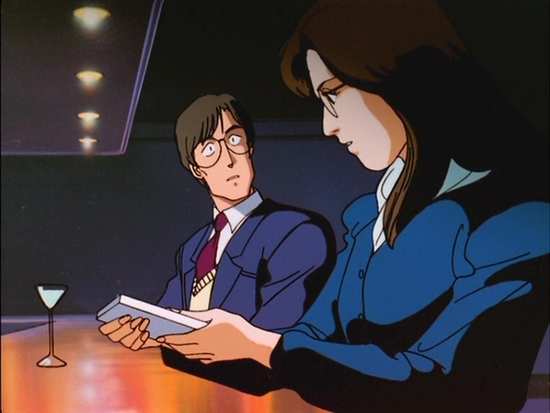
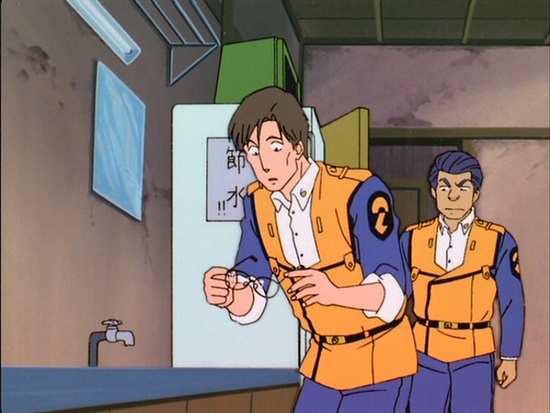
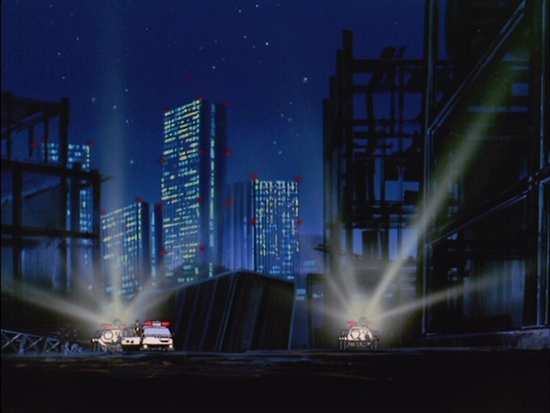
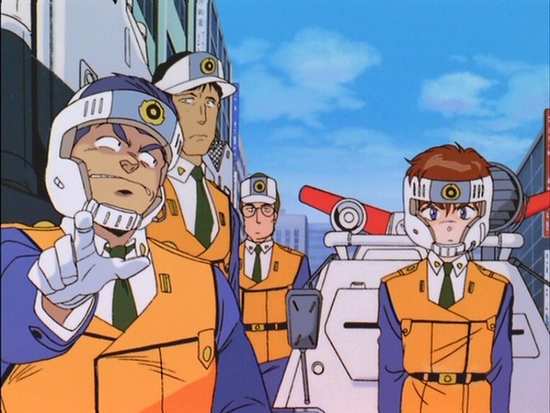
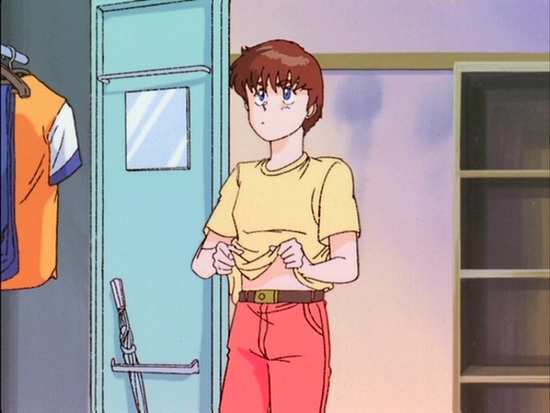
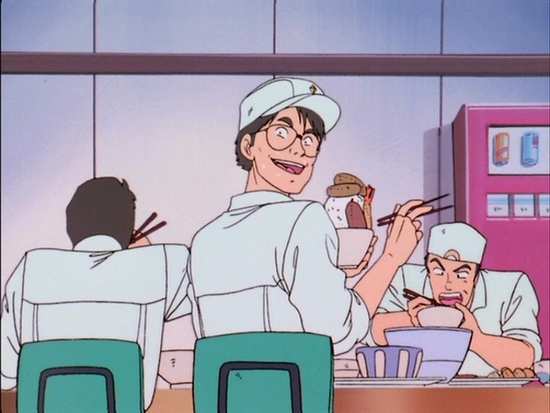
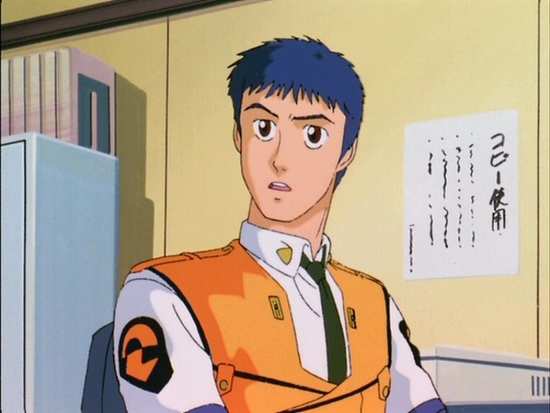
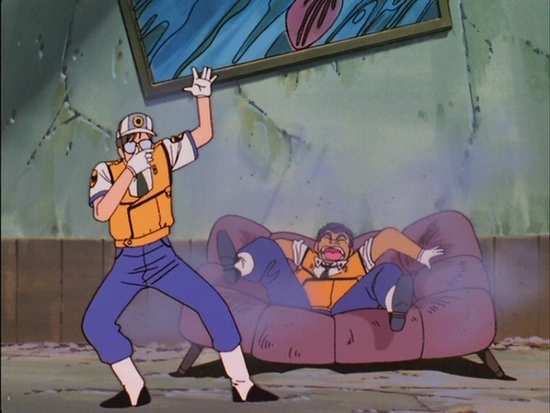
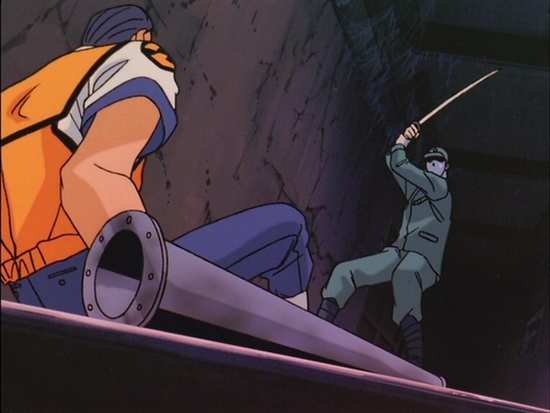
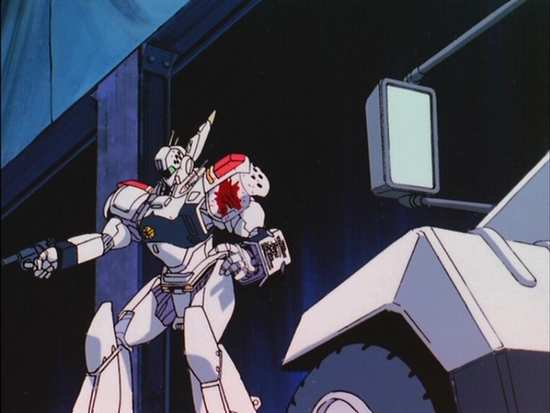

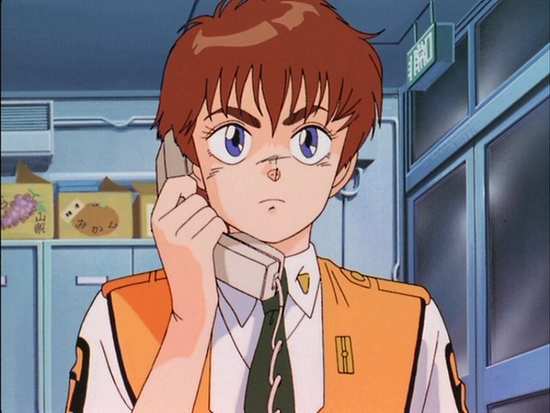
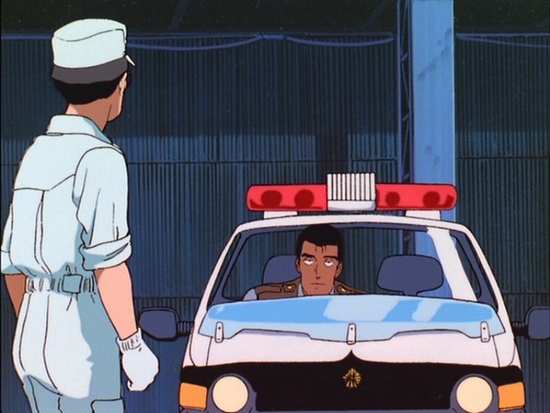

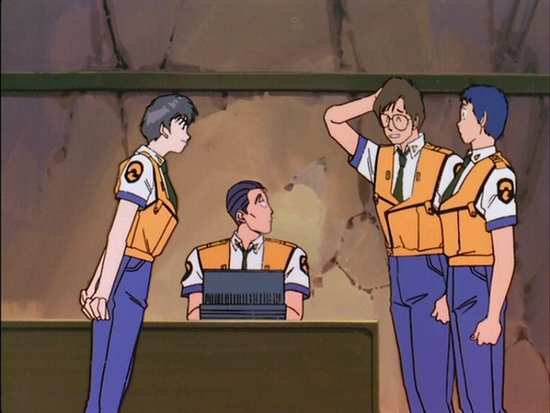
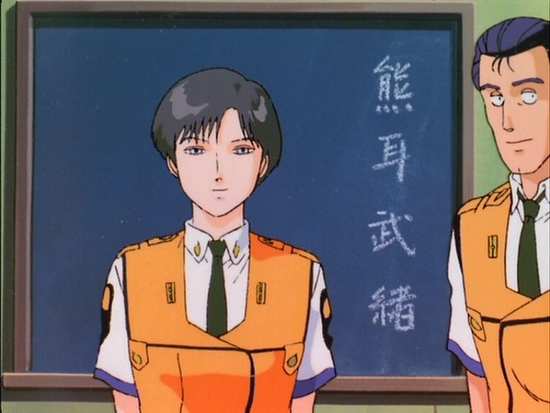
Your Opinions and Comments
Be the first to post a comment!